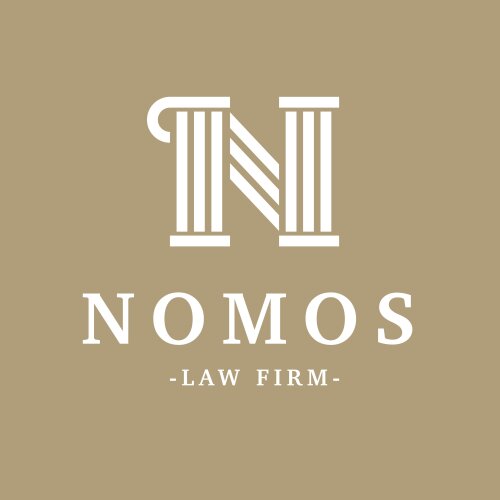Best Employment & Labor Lawyers in Italy
Share your needs with us, get contacted by law firms.
Free. Takes 2 min.
Or refine your search by selecting a city:
List of the best lawyers in Italy
Italy Employment & Labor Legal Questions answered by Lawyers
Browse our 1 legal question about Employment & Labor in Italy and read the lawyer answers, or ask your own questions for free.
- I am being repeatedly bullied by a colleague at work
- I am being repeatedly bullied by a colleague at work and despite numerous attempts to get help from my supervisors, nothing has been done. I have also been bullied by my supervisors (lying to me - giving preferential treatment to others - giving me more work - not helped when... Read more →
-
Lawyer answer by Studio legale DSC
The repeated bullying you've experienced is a serious matter.Given the impact on your well-being and your supervisors' involvement, consider consulting an employment lawyer to discuss potential compensation claims like hostile work environment or retaliation.
Read full answer
About Employment & Labor Law in Italy
Employment and labor laws in Italy are designed to protect the rights of workers and employers, ensuring fair treatment, safety, and equality in the workplace. These laws cover various aspects such as employment contracts, working conditions, labor rights, discrimination, and termination procedures. Italy has a strong tradition of workers’ rights, supported by both national legislation and European Union directives.
Why You May Need a Lawyer
Individuals may require legal assistance in employment and labor matters for various reasons. Common situations include disputes over employment contracts, wrongful termination, workplace discrimination, harassment, wage disputes, and compliance with labor regulations. Lawyers specializing in this field can help individuals understand their rights, negotiate settlements, and represent them in legal proceedings if necessary.
Local Laws Overview
Italian employment law is primarily governed by the Italian Civil Code and a series of statutes known as the Workers’ Statute. Key aspects include:
- Employment Contracts: These must comply with Italian law, covering job description, salary, working hours, and other conditions.
- Working Hours: Standard workweek is usually 40 hours, with a maximum of 48 hours including overtime, except for specific exemptions.
- Minimum Wage: As of now, Italy does not have a legislated national minimum wage, but minimum salaries are often set by collective labor agreements specific to industries.
- Termination and Redundancy: There are strict regulations concerning dismissal, requiring just cause or justified subjective reasons. Redundancy procedures are outlined for collective dismissals.
- Non-Discrimination: Laws prohibit discrimination based on gender, race, religion, age, disability, sexual orientation, and other factors.
- Employee Rights: Employees are entitled to various rights like parental leave, annual paid leave, and pensions under certain conditions.
Frequently Asked Questions
1. What are the common types of employment contracts in Italy?
The main types are fixed-term contracts, open-ended contracts, and part-time contracts. Each has specific rules regarding duration, termination, and employee rights.
2. How is overtime compensated?
Overtime compensation varies by sector and agreements, but generally, it includes additional pay or time off. Check the applicable collective labor agreement for specifics.
3. What should I do if I face workplace discrimination?
First, document incidents of discrimination. Consider discussing it with HR or a union representative. If unresolved, legal assistance may be necessary to file a complaint.
4. Can my employer terminate my contract without notice?
Termination generally requires notice unless it's for just cause (e.g., misconduct). The notice period depends on the contract type and duration of employment.
5. What is the role of collective bargaining agreements in Italy?
These agreements set the terms for various work conditions in a sector, including salary, working hours, and safety measures, often providing better protections than statutory requirements.
6. How is annual leave calculated?
Employees are entitled to at least four weeks of paid annual leave, in addition to public holidays, though some sectors may offer more based on agreements.
7. What legal protections exist for employees on parental leave?
Employees on parental leave are protected from dismissal and have the right to return to their former job or an equivalent position post-leave.
8. What are my rights if I am dismissed due to economic reasons?
For economic dismissals (collective or individual), employers must follow specific procedures, including consultation with unions and offering severance packages where applicable.
9. How are trade unions involved in employment law in Italy?
Trade unions play a crucial role in negotiating collective agreements and ensuring compliance with labor laws, often supporting employees in disputes.
10. Can I freelance or work as an independent contractor?
Yes, but different legal standards apply. You must comply with tax regulations and social security requirements for freelancers or independent contractors.
Additional Resources
- National Institute for Social Security (INPS): Provides information and services related to social security.
- National Institute for Insurance against Occupational Accidents (INAIL): Offers resources on workplace safety and compensation for occupational accidents.
- Italian Ministry of Labor and Social Policies: Governing body for labor laws and employment services.
- Employment Assistance & Consultation Centres: Local centers that provide guidance and support for employment-related issues.
- Trade Unions: Various trade unions offer advice, legal services, and support for workers' rights.
Next Steps
If you need legal assistance in employment and labor matters, consider consulting with a specialist lawyer. Research and choose a lawyer with experience in Italian labor law, ideally one associated with a professional body or bar association. You should also prepare all relevant documents and details about your employment situation to facilitate an efficient consultation. Remember to consider the costs involved and explore any available free or subsidized legal aid options.
Lawzana helps you find the best lawyers and law firms in Italy through a curated and pre-screened list of qualified legal professionals. Our platform offers rankings and detailed profiles of attorneys and law firms, allowing you to compare based on practice areas, including Employment & Labor, experience, and client feedback.
Each profile includes a description of the firm's areas of practice, client reviews, team members and partners, year of establishment, spoken languages, office locations, contact information, social media presence, and any published articles or resources. Most firms on our platform speak English and are experienced in both local and international legal matters.
Get a quote from top-rated law firms in Italy — quickly, securely, and without unnecessary hassle.
Disclaimer:
The information provided on this page is for general informational purposes only and does not constitute legal advice. While we strive to ensure the accuracy and relevance of the content, legal information may change over time, and interpretations of the law can vary. You should always consult with a qualified legal professional for advice specific to your situation.
We disclaim all liability for actions taken or not taken based on the content of this page. If you believe any information is incorrect or outdated, please contact us, and we will review and update it where appropriate.
Browse employment & labor law firms by service in Italy
Italy Attorneys in related practice areas.
Browse employment & labor law firms by city in Italy
Refine your search by selecting a city.
















